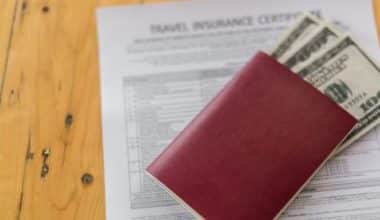Business insurance, also known as commercial insurance, protects businesses from losses due to unexpected events during normal business operations. This includes lawsuits, natural disasters, or accidents.
It is a contract between the business owner and the insurance company, where the insurance company agrees to compensate the business for covered losses in exchange for premium payments.
There are many types of commercial insurance for businesses, including coverage for property damage, legal liability, and employee-related risks, among others. Companies evaluate their commercial insurance needs based on potential risks, which can vary depending on the type of business and its environment.
Simply put, business insurance is a form of risk management used to protect you and your company from financial loss in the event of an accident or crisis.
How business insurance works
Business insurance works by transferring the financial risks faced by a business to an insurance company.
The business owner pays regular premiums to the insurance company based on the coverage and policy terms. In return, the insurance company agrees to provide financial compensation or coverage for specific events or losses outlined in the policy.
When a covered event occurs, such as property damage, theft, or a liability claim, the business owner files a claim with the insurance company. The insurance company assesses the claim and, if approved, provides the agreed-upon compensation or coverage as per the policy terms.
Business insurance operates on the principle of spreading the risk among a large number of policyholders. This allows each business to pay a relatively small premium in exchange for protection against potentially significant losses.
Types of business insurance
Liability Insurance
Liability insurance protects businesses from legal claims and financial losses resulting from third-party injuries, property damage, or lawsuits. It covers legal defense costs, settlements, or judgments if the business is found legally liable for causing harm or injury to others.
Liability insurance is crucial for businesses that interact with customers, clients, or the public and helps protect their financial interests in case of accidents, injuries, or property damage claims.
General liability insurance
General liability insurance, also known as business or commercial liability insurance, is essential coverage for various claims, including bodily injury, property damage, personal or advertising injury, medical payments, products-completed operations, and damages to premises rented to you.
Virtually every small business owner or contractor should have some form of general liability insurance. When buying small business insurance and comparing policies, keep in mind that your rates will depend on your business’s specific features.
Business Owners Policy (BOP)
If you want general liability insurance and property coverage, you can package them together in a business owner’s insurance policy, also known as a BOP. A BOP provides liability coverage for customer injury, property damage, and product-related claims, in addition to commercial building and movable property coverage.
Many BOPs also include business interruption coverage, which pays your lost revenues if you close for a covered claim. This coverage type is ideal for owners of small and midsize businesses like restaurants, retail stores, and wholesalers. Keep in mind that BOP insurance doesn’t cover your employees.
Professional liability insurance
Professional liability insurance, also known as errors and omissions (E&O) insurance, protects businesses that offer professional services. B2C businesses often use E&O coverage to protect against claims stating their services caused clients financial distress or bodily injury.
Doctors’ malpractice insurance is a common type of professional liability insurance. This insurance type is also essential for professional service providers like consultants and financial advisors. Costs for professional liability insurance will vary depending on the industry and profession. For example, a doctor would likely pay more than a CPA.
Employment Practices Liability Insurance (EPLI)
Small businesses with employees often benefit from employment practices liability insurance. This insurance type protects you if an employee files a claim against you for wrongful discipline or termination, sexual harassment, discrimination, negligent evaluation, breach of employment contract, mismanagement of employee benefits, or wrongful infliction of emotional distress.
Some insurers offer EPLI as stand-alone coverage, whereas others offer it as an endorsement to their BOP. Your policy’s terms and conditions will depend on the coverage you choose. Your business type, number of employees, and various risk factors all play a part in the cost of EPLI.
Contractors’ professional liability insurance
If your business is in the design-build or construction management industry, you are required to purchase some form of contractors’ professional liability insurance. This coverage protects professionals against construction errors or losses incurred when designing, engineering and constructing a building.
It can also protect you from errors made by third-party vendors associated with a project.
Directors and officers (D&O) liability insurance
If your business has a corporate board of directors or advisory committee, you want D&O insurance. This insurance protects your directors’ and officers’ assets if they are personally sued for wrongful acts in company management (e.g., failure to comply with workplace laws, fraud, theft of intellectual property, misrepresentation of company assets, or misuse of company funds).
Management liability insurance
Management liability insurance is a combination of coverages used to protect private, public and nonprofit companies from various board-level exposures. It protects against the risks of managing a business and is purchased by organizations with a board of directors.
A typical management liability insurance package includes coverage for employment practices liability, fiduciary liability and D&O liability.
Product liability insurance
Product liability insurance provides more protection and security than a standard product warranty or guarantee. This coverage protects your business if a product causes damage or injury to a third party, or if your business faces a product-related lawsuit. For example, if your product had a lithium battery that caught on fire, injuring the consumer, they could sue you. Product liability insurance covers you in this instance.
Property Insurance
Property insurance covers the physical assets of a business, including buildings, equipment, inventory, and other tangible property. It provides compensation for losses due to events like fire, theft, vandalism, or natural disasters.
Property insurance helps businesses recover and repair or replace damaged or stolen property, minimizing the financial impact of such events. The type of coverage you need will depend on the property you own or rent.
Types of insurance under property insurance include:
Commercial property insurance
Commercial property insurance protects your physical assets (building, equipment, inventory, tools, furniture and personal property) and covers financial losses due to property damage from fire, theft or loss.
Property insurance coverage ranges from basic to comprehensive (and pricing scales reflect that), although small and midsize businesses with physical assets typically need some form of this coverage. Unless you own your commercial property outright (meaning there is no lien or mortgage against it), your lender will require you to have this coverage.
Business renters insurance
Business renters insurance is essential for businesses operating in one or more rented spaces. It will cover incidents within the space, including fire, floods, accidents, and building or property damage due to natural disasters. This type of insurance covers many things that the other policies also cover, but for rented spaces specifically.
Homeowners’ insurance
If you have a home-based business or store business property in your house, check the business coverage under your homeowners’ insurance. Homeowners insurance often only provides limited coverage (e.g., $2,500) for business property or equipment stored in your home, and some policies don’t cover business property at all.
Those with a home-based business should seek more comprehensive business coverage through a homeowners policy endorsement or an in-home business policy. As with commercial property insurance, a lender will require a homeowners policy until the mortgage is paid.
Personal auto insurance
If you are self-employed and drive your personal vehicle for business purposes, you may be covered under your personal automobile insurance. If you own your car, truck or van and only use it occasionally for work, you may be able to skate by with standard personal auto insurance designated for business use.
However, if you operate a company-owned vehicle, your vehicle is specifically designated for work, or you need higher coverage, you may need a commercial automobile insurance policy.
Commercial auto insurance
Commercial auto insurance provides coverage for vehicles used for business purposes. It includes liability coverage for third-party injuries or property damage, as well as coverage for damage to the insured vehicle.
Commercial auto insurance is similar to personal automobile insurance; it protects your cars, trucks or vans in the event of damage, injury or liability claims. However, commercial auto insurance provides additional coverage, including property and liability trailer exposure, loading and unloading exposure, hired vehicle coverage, non-owned vehicle coverage, and higher coverage limits.
This type of insurance is essential for businesses that own or use vehicles as part of their operations. It protects them from potential liability claims and financial losses resulting from accidents or damage to vehicles.
Business interruption insurance
Business interruption insurance helps protect against lost income after a covered peril affects a business. Covered perils typically include theft, fire, wind, falling objects or lightning. Coverage may help reimburse you in two ways:
- For lost income from the destroyed merchandise (minus expenses you may have already paid, such as shipping).
Your pre-loss earnings are the basis for reimbursement under business interruption coverage. Lost earnings, also known as the actual loss sustained, are typically defined as revenues minus ongoing expenses. - For extra expenses if you must temporarily relocate your business because of the fire (for example, the cost of rent at the temporary location).
Business interruption insurance is not sold as a separate policy but is either added to a property/casualty policy or included in a comprehensive package policy as an add-on or rider.
Cyber insurance
Cyber insurance protects businesses against losses and liabilities arising from cyber threats and data breaches. It provides coverage for expenses related to data breaches, including legal costs, customer notification, credit monitoring, and reputation management.
Cyber insurance helps businesses manage the financial and legal risks associated with data breaches, cyber-attacks, and other cyber incidents.
Workers’ Compensation Insurance
Workers’ compensation insurance provides coverage for employees who suffer work-related injuries or illnesses. It covers medical expenses, disability benefits, and lost wages for employees who are injured or become ill while performing their job duties.
Workers’ compensation insurance is typically required by law and helps protect businesses from potential lawsuits by employees seeking compensation for work-related injuries or illnesses. If an employee accepts the benefits of workers’ comp, they relinquish their ability to sue your company for the illness or injury.
Types of insurance under this include:
Life insurance
You and any other members of your business can acquire a life insurance policy. This is similar to key person insurance, providing a beneficiary with financial assistance in the event of your death. Having life insurance in place can give you peace of mind that your death will not burden your family or business partners financially.
Disability income insurance
Disability insurance is similar to workers’ comp in that it temporarily covers an employee’s lost wages if they are unable to work because of a disability. However, disability insurance will cover injuries or illnesses that occurred on or off the job, whereas workers’ comp only covers work-related issues.
This type of insurance is also sometimes required by law.
Key person insurance
When founders die, businesses often have a challenging time continuing operations. It is essential for entrepreneurs to create a business continuity plan so the company can still thrive if the worst happens.
Key person insurance, also known as key man insurance or key woman insurance, helps replace lost revenue due to the death of a key executive of your business. Your business pays the premium while the key person is alive and then collects a death benefit after their passing.
These benefits can be essential to continuing the operation of your business or finding someone to fill their role.
Factors to consider when choosing business insurance
Type of business
The nature and industry of the business play a crucial role in determining the appropriate types of insurance coverage needed. Different industries have specific risks and requirements, and businesses should consider policies that align with their operations and potential risks.
Business size
The size of the business, including the number of employees, annual revenue, and assets, can impact insurance needs. Larger businesses may require broader coverage and higher policy limits to adequately protect their assets and manage risks.
Industry regulations
Some industries have specific insurance requirements and regulations that businesses must comply with.
For example, businesses in the healthcare industry may need malpractice insurance, while construction companies may require liability coverage for worksite accidents.
Business location
The location of the business can impact the types and costs of insurance coverage. Businesses located in areas prone to natural disasters, crime, or other risks may need additional coverage to mitigate potential losses.
Business risks and vulnerabilities
Each business has unique risks and vulnerabilities that need to be considered when choosing insurance coverage. A risk assessment can help identify potential threats and determine the appropriate coverage needed to mitigate these risks.
What does business insurance cover?
No single policy protects against all business risks. Different types of business insurance protect against customer injuries, property damage, cyberattacks, and other threats to your business.
In general, business insurance can cover risks associated with:
Employees and management
Employees and managers help your business grow, but they also introduce more risks to your daily operations. For example, when you have employees, you can be liable for their workplace injuries and violating their work rights.
Property
Fire can easily devastate a business. For that reason, business owners often purchase commercial property insurance (also referred to as business renter’s insurance) especially if they own specialized or valuable business property. When certain weather events or disasters strike, it can help cover the cost of repairing and replacing your property.
Property insurance also protects against burglary and theft, two of the most common small business claims.
Small and medium-sized businesses with higher risks often look into purchasing a commercial package policy (CPP), which operates similarly to a BOP, but offers more flexible protection options to meet their increased levels of risk.
Clients and customers
Your business wouldn’t be much without your customers and clients. Unfortunately, interacting with clients brings the risk of lawsuits, which are not cheap. The good news is there are several business insurance policies to help manage the risks presented by clients and members of the public.
Motor vehicles
Business owners are often unclear about the coverage they need for their vehicles. Many think they can drive their personal auto for business because it’s insured, but that can be a costly mistake if you or your employee gets in an accident. Vehicle claims an average of $45,000 for small business owners, according to a study by The Hartford.
That’s why it’s smart to carry additional coverage if you drive for work.
What does business insurance not cover?
While business insurance is crucial for most businesses, it does not provide all the protection you need. In some cases, you may need to request insurance endorsements for your policies.
Endorsements allow you to customize your policy to better fit your needs or budget without having to shop for – and buy – a new policy. This will allow you to buy insurance that better fits your needs. For example, if a policy you’re considering doesn’t protect a key person, you can ask your agent to add an endorsement that adds this missing protection.
Benefits of business insurance
Legal protection
Business insurance provides legal protection to businesses, covering legal defense costs, settlements, or judgments resulting from liability claims or lawsuits. It helps protect businesses from potential legal and financial consequences of third-party claims and lawsuits.
Financial protection
Business insurance provides financial protection to businesses against unexpected events or losses, including property damage, liability claims, and lawsuits. It helps minimize the financial impact of these events, allowing businesses to recover and continue operations.
Peace of mind
Business insurance provides peace of mind to business owners, knowing that they have coverage and protection against potential risks and losses. It allows businesses to focus on their operations and growth, rather than worrying about potential liabilities or unexpected events.
Risks of business insurance
Under-insurance
Under-insurance occurs when businesses purchase insufficient coverage, leaving them vulnerable to potential risks and losses. This can result in significant financial losses and liabilities, as businesses may not have adequate coverage to manage unexpected events or claims.
Over-insurance
Over-insurance occurs when businesses purchase more coverage than needed, resulting in higher premiums and unnecessary costs. This can be a significant financial burden for businesses, reducing their profitability and competitiveness.
Premium costs
Insurance premiums can be a significant expense for businesses, affecting their profitability and cash flow. Businesses should carefully consider the costs and benefits of different coverage options to determine the most cost-effective insurance solutions.
Insurance company insolvency
Insurance company insolvency can result in the loss of coverage and protection for businesses. It can be challenging to recover losses or liabilities from insolvent insurance companies, putting businesses at risk of significant financial losses.
Why you should have business insurance
It’s important to have business insurance because the financial consequences of a potential mishap could easily wipe out the assets of a small business. Insurance provides protection in case customers or passersby experience harm at the hands of your company, or if your company is harmed by an incident such as a fire.
In addition to protecting yourself, it’s also important to have business insurance so you can protect others. If you own a food business and a customer becomes ill after eating one of your products or if you own a delivery business and one of your vehicles hits a pedestrian, you need to be able to pay for the damage you’ve caused.
It’s also important to have insurance because it can be a requirement for certain types of business activities. Some contracts require in their terms that you be insured, and some types of insurance, such as workman’s compensation, are required for all businesses in most states.
Business insurance can help protect business owners and independent professionals against everyday risks, such as mistakes, stock or premises damage, and legal costs (known as Liability insurance). Some policies can even protect against business interruption and supply chain breakdown.
This protection means that, should your business suffer an unforeseen knockback, you can feel confident that you and your employees are protected. Meanwhile, your insurer can help to get your business back up and running again quickly.
It can also offer credibility to your business, demonstrating to prospective customers and potential employees that you are trustworthy to do business with.
Recommended Articles
- Small Business Insurance: What Is It & How Does It Work?
- 8 Best Insurance Providers For Small Business 2023
- Types of Business Insurance: What Coverage Does Your Business Need?






